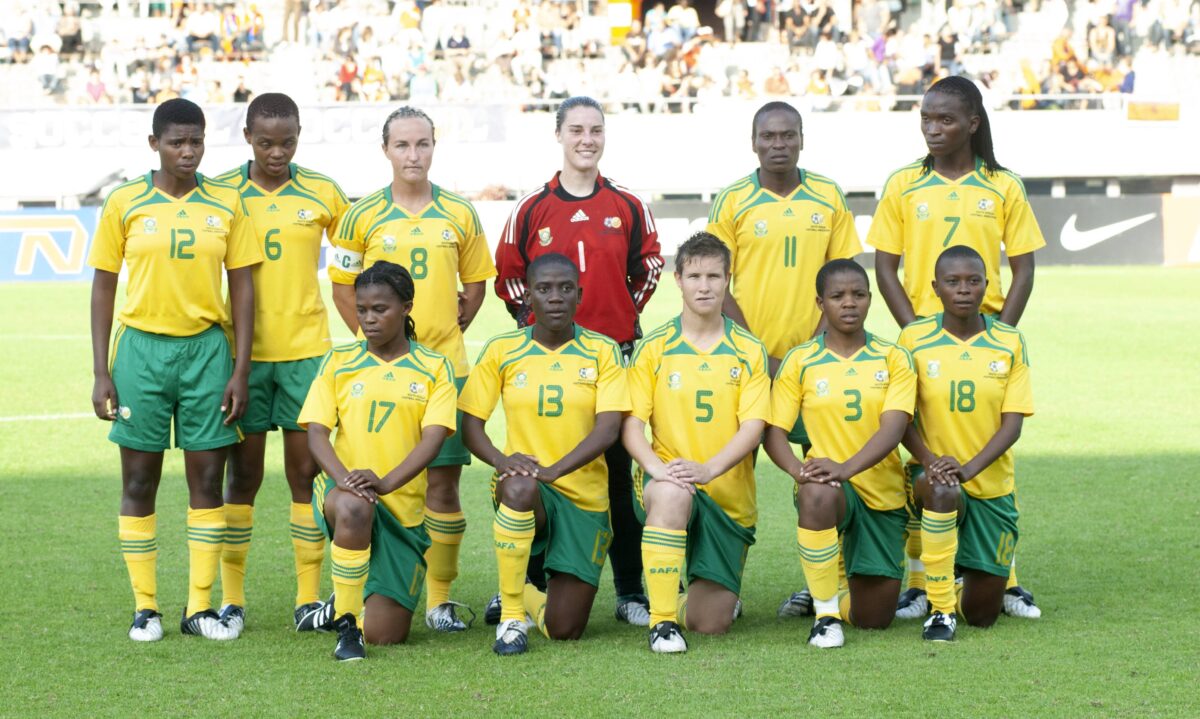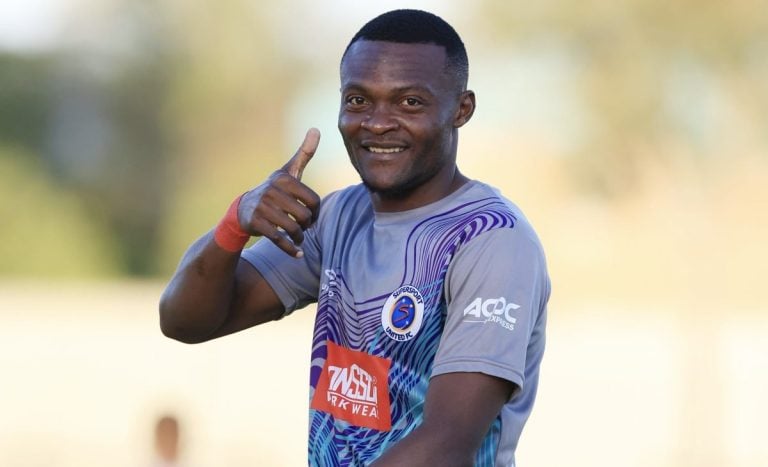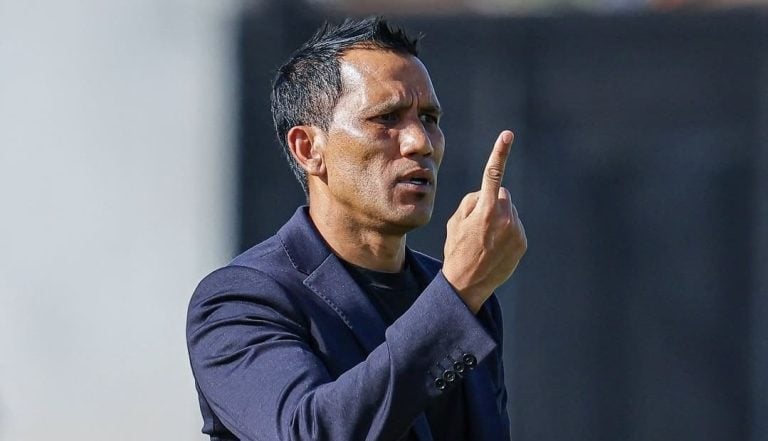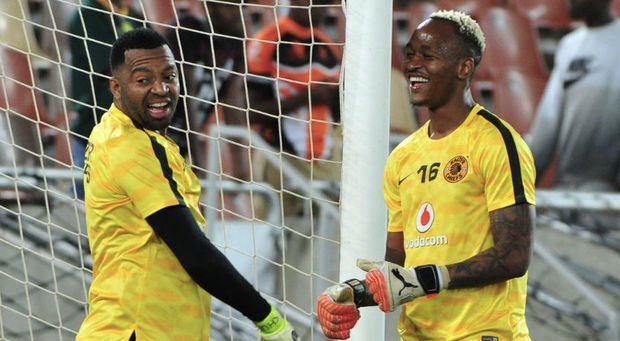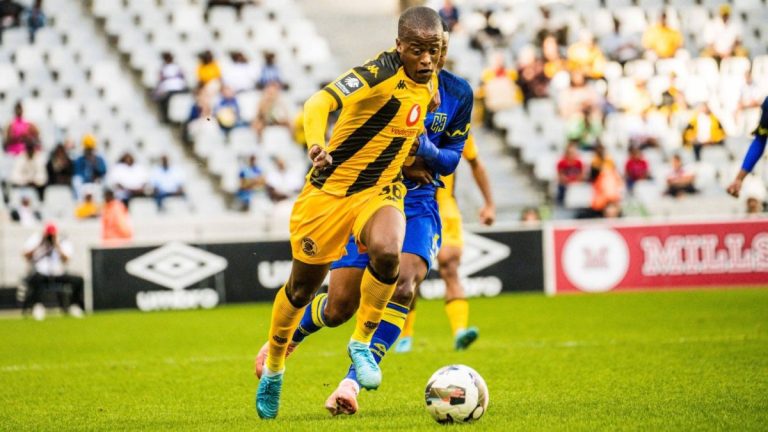It might be viewed as unprecedented, but a former Banyana Banyana captain argues that it should be standard for a woman to coach a men's team, as she is willing to take on the challenge.
The world of coaching remains stubbornly unequal. Female coaches haven't been entrusted to lead men's teams at a significant level.
While Taoni Banda, currently leading the AmaZulu FC U-15 boys team, is a beacon of progress in South Africa, yet the idea of a woman coaching a top-flight club rarely crosses the minds of club bosses.
In a recent interview with Afrik-Foot, former Banyana Banyana defender and current Bantwana (U-17) coach Simphiwe Dludlu declared, “I'm not just a female coach, I'm a football coach.”
Dludlu recently responded to a social media post regarding the coaching vacancy at Sekhukhune United, humorously indicating her interest. When asked about it by this website, she called for gender parity, highlighting that being a man is not a prerequisite for coaching a men's team.
SIMPHIWE DLUDLU CALLS FOR GENDER PARITY IN COACHING
“When you are a coach, you have aspirations, it’s very easier for male coaches because a lot of the male coaches that I started my coaching education with like Fadlu (Davids), Arthur Zwane, there’s a lot of them, that group of coaches in 2012 when we did CAF B License, a lot of them went in clubs like Kaizer Chiefs and Maritzburg United,” said Dludlu during the interview with Afrik-Foot.
“They went to coach PSL teams, the likes of Tso Vilakazi. I’ve always aspired to coach in the men’s team because I thought I am a coach not just a woman’s football coach; I am a coach.
“So, I think when you are a coach you look and say when the opportunities come, you grab them and go with any opportunity that you get and that is suitable for you.
“Monetary value needs to be put upfront as well because as women it feels like we just take opportunities because we just want to work.
“We are not considered as much for the pay cheque and things like that. Being exposed to a Banyana Banyana set up, being in the COSAFA, even going with the team to the World Cup, you get to dream higher as well.
“I look at myself and say, ‘I would like to see myself coaching one of the great clubs in the world. I would like to see myself coaching outside South Africa, outside Africa because that’s where the big leagues are.
“So, for me (I would consider) a great opportunity that can elevate me to the next level. I can’t necessarily say I’m eyeing the position of Banyana Banyana.
“I’m saying to myself, the opportunities that would come that can elevate my career and make financial sense for me are important.
“To get an opportunity you to go overseas, as long as it’s a good deal and I’m able to say I can add value to my family as well.
“Being in that stage as a woman, you need to be calculative, you need to be smart about things and be able to see if that career can sustain you.
“With man’s football, a coach for national team can get fired or sacked, they can easily go to a club. But with women it’s different.
“So, you need to be smart about things, don’t rush, when the time is right, God makes those opportunities available.”
Dludlu emphasized that she doesn't want opportunities based on favoritism; she wants to be recognized for her merit.
‘I DON’T WANT A FAVOUR’
“You find people arguing saying, women should stick to women’s football and men should stick to men’s football and things like that,” she added.
“But if there are opportunities, anyone would coach anywhere. There wouldn’t be such discussions because the playing field would be level.
“It’s going to be important for us. When we say ‘gender parity’, that’s what we mean; equal opportunities and things like that and you must be ready for those opportunities.
“That’s because I also don’t want to be in that space where a person just does me a favour to say just because she’s a woman. I want to be there on merit because I’m able to be there.”

